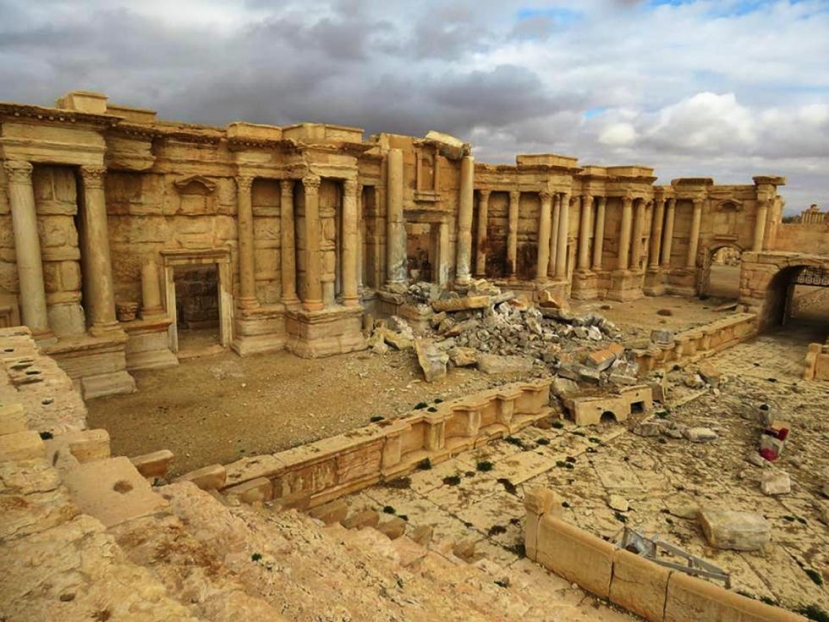Will Syria and Russia be able to protect Palmyra from terrorists?
07.03.2017 18:53
 Will Syria and Russia be able to protect Palmyra from terrorists?
Will Syria and Russia be able to protect Palmyra from terrorists?
On March 2, Russian Defense Minister Sergei Shoigu told President Vladimir Putin that Palmyra had returned to Syrian government control. The Syrian Army regained control over the Al-Tar mount near the city, where it placed guns to cover troops.
Syrian troops entered the city from several directions, but the advance slowed because the militants had mined a large part of the city. Sappers were then sent ahead of the soldiers to clear key routes so that infantry and military hardware could proceed.
Fars News agency reported that Islamic State troops suffered heavy losses and retreated eastward from the city.
How will Palmyra be protected?
Victor Murakhovsky, a reserve colonel and chief editor of Arsenal Otechestva magazine, said the Syrian Army seized the mountainous heights near Palmyra, from where it can now deploy artillery. This will help control the area for almost five miles around.
"The army obtained an important stronghold and created a boundary that will impede the militants' counterattack, and this will help protect the reclaimed districts and prepare for an advance on Deir ez-Zor, where militants have surrounded Syrian units," said Murakhovsky.
After the first battle for Palmyra in March 2016 local militia forces were charged with defending the city, and most combat-ready troops were moved to Aleppo to help liberate that city.
After the first battle for Palmyra in March 2016 local militia forces were charged with defending the city, and most combat-ready troops were moved to Aleppo to help liberate that city. Source: Oleg Blokhin/Anna News
Now, the Russian Defense Ministry’s local command will assist the Syrians with additional troops and technology to hold the city, said Igor Korotchenko, chief editor of National Defense magazine.
"To hold the city a large combat contingent is not necessary, and Russia will send additional reconnaissance systems to monitor the area around it," said Korotchenko. "We will also help strengthen artillery positions and fortifications around the city in order to avoid the repetition of last year's events when militants approached Palmyra unnoticed and took the city a second time."
Leonid Ivashov, a reserve lieutenant general and president of the International Center for Geopolitical Analysis, said that militants will now begin terror attacks and will send suicide bombers to the city's residential areas when people start returning there.
"It will be necessary to strengthen the security services' control, and not only will checkpoints on the city's perimeter need to be reinforced but also the security of the residents inside," said Ivashov.
What next for Palmyra?
Experts believe that Idlib Province is the next place where Russia's Air Force will be involved, and which is where 30,000 militants and their families fled to when using humanitarian corridors.
"The Syrian Army with our support is trying to encircle the terrorists, after having liberated the western part of Aleppo Province, as well as the northern part of the Hama and Latakia Provinces," said Vladimir Yevseyev, a military expert and deputy director of the Institute of CIS Countries.
Military activity in this area will last until summer, and then the Russian and Syrian armies will turn their attention to the eastern front, to the cities of Raqqa and Deir ez-Zor.
"I hope we will begin cooperation with the U.S. in Syria and the war will not last more than a year," added Yevseyev.
